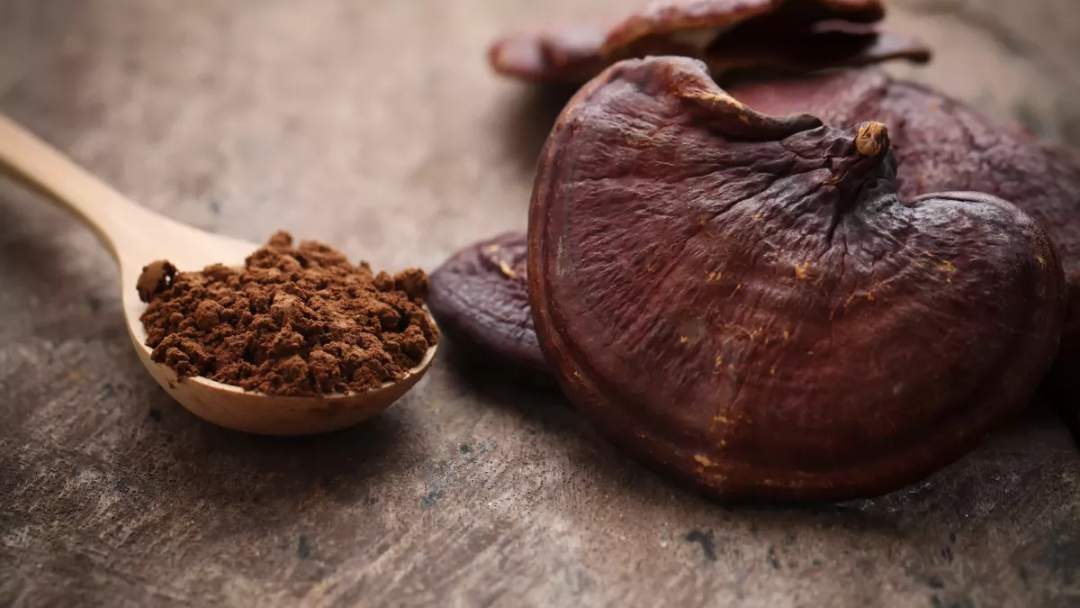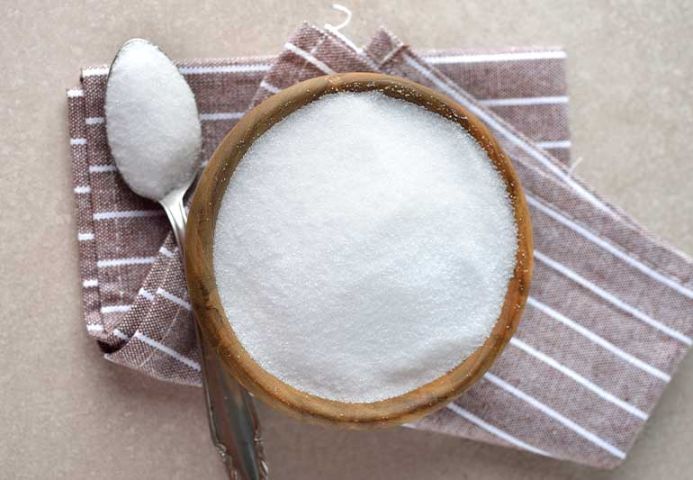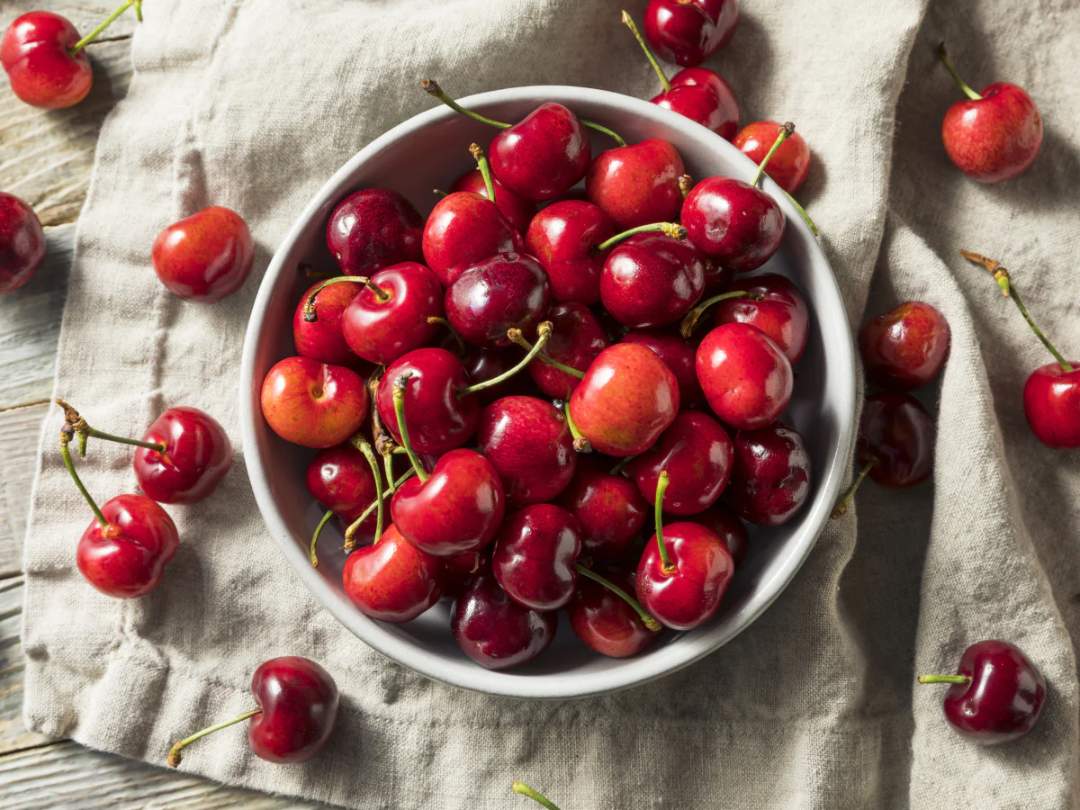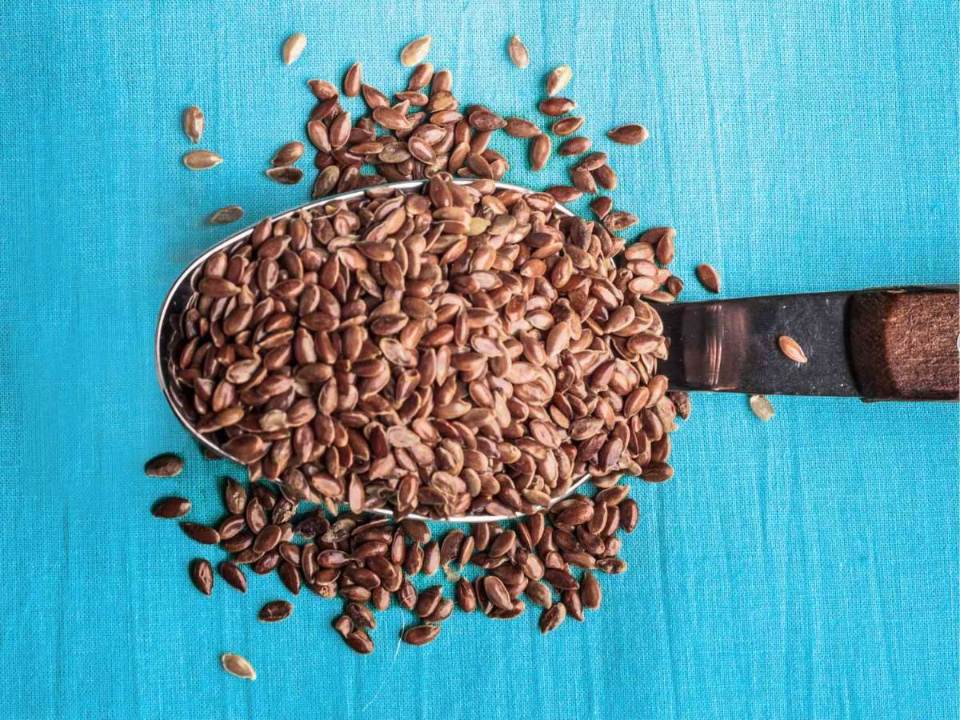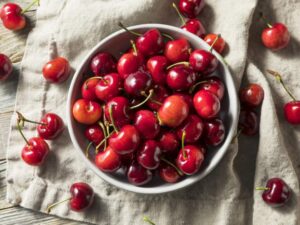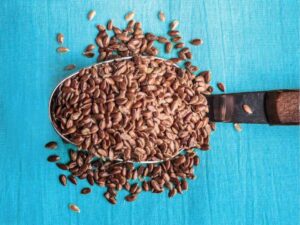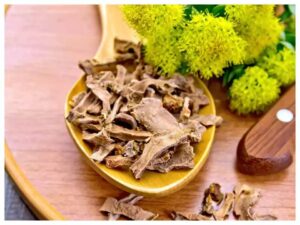What is Reishi mushrooms
Reishi mushrooms is a type of mushroom also known as Lingzhi mushroom, and has been highly regarded as a valuable medicinal herb since ancient times, even appearing frequently in the classic Chinese novel, The Ten Longevities.
Although Reishi mushrooms are grown all over the world, they are primarily cultivated in East Asia. In the past, the Chinese believed that Reishi mushrooms had the power to revive the dead and were thus referred to as “the herb of spiritual potency”. While traditionally used in herbal medicine, even just drinking water infused with Reishi mushrooms is said to be beneficial. It is known as a panacea for treating various ailments such as respiratory diseases, digestive disorders, insomnia, and even cancer.
Reishi mushrooms grow from the roots or stumps of deciduous trees like oak or chestnut and fruit in a variety of colors. Red Reishi mushroom is called Jangsa, yellow is Hwangji, blue is Cheongji, and white is Baekji. Yeongji mushrooms can also be categorized based on the presence or absence of a stem; those without a stem are called Pyeonmok Yeongji. The most widely known variety of Yeongji is the red variety with a stem.
Although highly regarded for its health benefits, Reishi mushrooms are not particularly expensive, even when naturally grown. Additionally, there are now cultivated varieties available using sawdust, making them more accessible to consumers. However, the quality and efficacy of natural and cultivated Reishi mushroom can differ.
In traditional Korean medicine, Reishi mushrooms are used to treat various conditions such as nervous disorders, heart disease, and hypertension, and are popularly consumed as a health supplement due to their high levels of anti-cancer and immune-boosting compounds. However, due to their bitter taste, individuals with weak digestive systems should exercise caution when consuming Yeongji mushrooms.
Reishi mushrooms are also used for decoration and are sometimes referred to as Elixir Plants or the Mushroom of Immortality. They are widely distributed across the world and have been the subject of numerous studies regarding their potential anti-cancer properties.
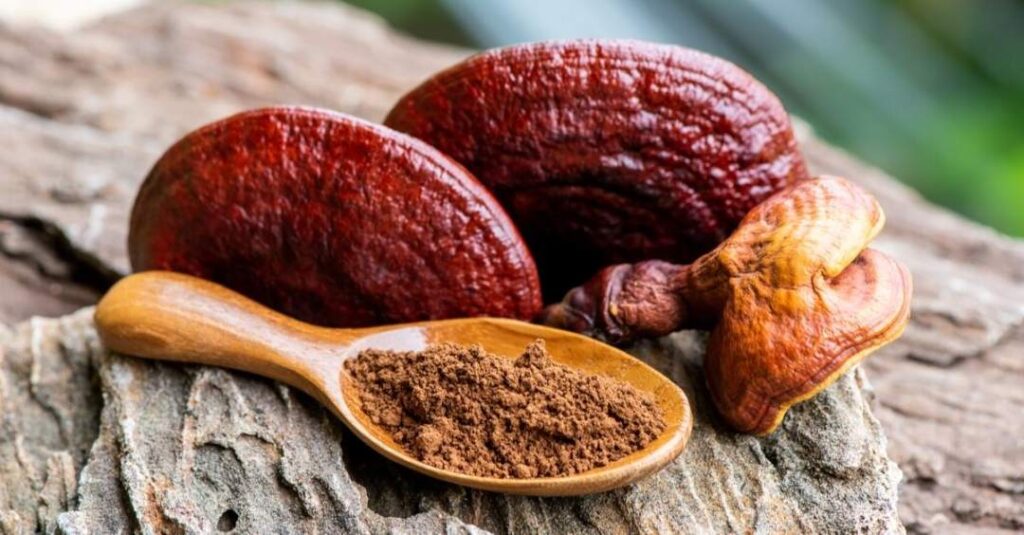
What is Reishi mushrooms Core Ingredients and Efficacy
Dried Reishi mushrooms weighing 100g contain 187kcal of energy, 9.41g of protein, and 1.4g of fat. They also have a carbohydrate content of 81g, of which 77.9g is dietary fiber, with the majority of the fiber being soluble.
Reishi mushrooms are rich in all nine essential amino acids, including isoleucine and leucine, as well as several non-essential amino acids. They also have high levels of minerals and vitamins. In 100g of dried Reishi mushrooms, potassium is 128mg, magnesium is 39mg, and phosphorus is 144mg, with 263mg of potassium. Additionally, they contain significant amounts of minerals such as zinc, copper, manganese, and selenium. Reishi mushrooms also contain various vitamins, including beta-carotene, the precursor to vitamin A, pantothenic acid, folate, biotin, and other B-group vitamins.
Reishi mushrooms contain powerful physiologically active substances such as beta-glucan polysaccharides, peptidoglycans, and triterpenes. However, the levels of these components may vary depending on factors such as the type of mushroom and whether it was naturally grown or cultivated. These components are known to have various beneficial effects on human health.
What is Good Reishi mushrooms
There are two main ways to consume Reishi mushrooms. One is to purchase the mushroom itself, and the other is to purchase supplements made from Reishi mushrooms extract.
Choosing Reishi mushrooms
There are two types of Reishi mushrooms, natural and cultivated. You can choose based on your needs. Look for mushrooms that have a clear and fresh color, and it’s better if the cap is not completely opened.
Reishi mushrooms extract products
Supplements made from Reishi mushrooms extract come in powder, capsule, and refined products. It is recommended to choose products from reputable companies. Before purchasing, check the additives and content on the ingredient label, and follow the instructions on the manual after purchasing. The content may vary depending on the product.
Reishi mushrooms extract powder can be used in various ways. It can be mixed with milk, sprinkled on green salads, added to green smoothies, mixed with plain yogurt, or brewed with green tea powder and hot water.
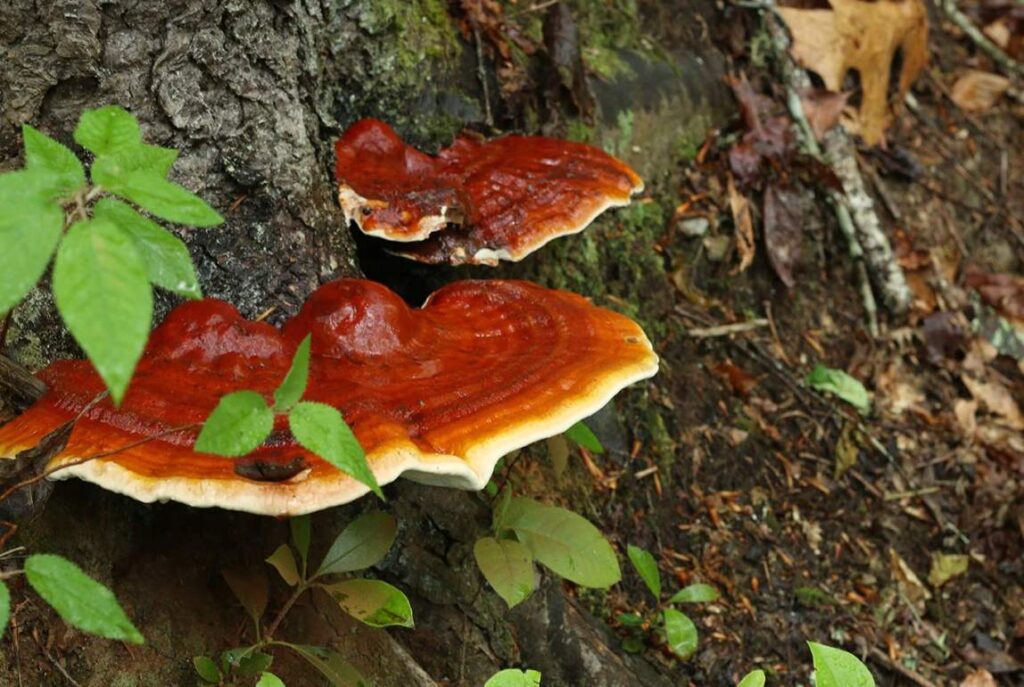
Benefits of Taking Lingzhi Mushroom
- There are two main ways to consume Reishi mushrooms by purchasing the mushroom itself or by purchasing a supplement made from Reishi mushrooms extract. Mushrooms can be either naturally grown or grown on a farm, so it’s up to personal preference. Look for mushrooms with a bright color and a fresh appearance, and make sure the cap is not fully opened.
- Reishi mushrooms has anti-cancer properties. Its antioxidant components, beta-glucan and terpene, have strong effects in removing harmful oxygen radicals from the body and increasing immunity, preventing the proliferation and metastasis of cancer cells.
- Reishi mushrooms prevents blood clots, inhibits cholesterol, and strengthens the heart. It also promotes blood circulation and lowers blood pressure, making it a popular herbal remedy for those with high blood pressure.
- Reishi mushrooms has a calming effect that soothes inflammation and relieves coughing. It’s a commonly sought-after herbal remedy for those with respiratory problems or asthma.
- Reishi mushrooms contains proteoglycan, which enhances and protects kidney function, making it effective in preventing kidney-related diseases.
- Non-clinical studies suggest that Reishi mushrooms lowers blood sugar and cholesterol levels. Limited clinical studies show that Ganopoly®, a supplement made from Reishi mushrooms extract, slightly improves diabetes indicators. It’s important to note that the authors of these studies have a close relationship with the manufacturer of Ganopoly®.
- Reishi mushrooms has a calming effect that regulates the autonomic nervous system, making it effective in relieving anxiety.
- Preliminary research suggests that Reishi mushrooms extract may be effective in reducing pain in post-shingles patients.
Arthritis
A combination of reishi mushroom and San Miao San (a mixture of several Chinese herbs) may help reduce the pain of rheumatoid arthritis. These herbs lacked an effect on swelling. More research with reishi mushroom alone is needed.
Cancer
Reishi has been shown to have anti-cancer and immune enhancing effects in nonhuman research. In human research, Ganopoly®, a reishi extract, resulted in improved quality of life and enhanced immune responses in people receiving treatment for advanced cancer. It is important to note that these data were published by authors affiliated with the manufacturer of Ganopoly®.
Chronic hepatitis B
Early evidence showed that Ganopoly® treatment decreased the amount of hepatitis B virus (HBV) in the blood. This virus is hard to clear from the body and recurrence after treatment is common. The affiliation of authors to the manufacturer of the drug is noteworthy.
Diabetes mellitus type 2
Non-human research showed that reishi lowers blood sugar and cholesterol levels. In limited human research, Ganopoly® slightly improved diabetes markers. The authors are closely related to the manufacturer of Ganopoly®.
Heart disease
In limited human research, Ganopoly® improved symptoms of heart disease such as chest pain, increase heart rate, and shortness of breath. Blood pressure and cholesterol were also decreased. The authors are closely related to the manufacturer of Ganopoly®.
Heart disease prevention
In early human research, reishi lacked an effect on blood pressure and cholesterol levels (which increase heart disease risk).
High blood pressure
Ancient Chinese monks utilized the reishi mushroom to calm their minds for meditation. Early research suggests that reishi may lower blood pressure.
Pain (postherpetic)
Early research showed reishi extract to be effective in decreasing postherpetic pain (pain after herpes lesions heal).
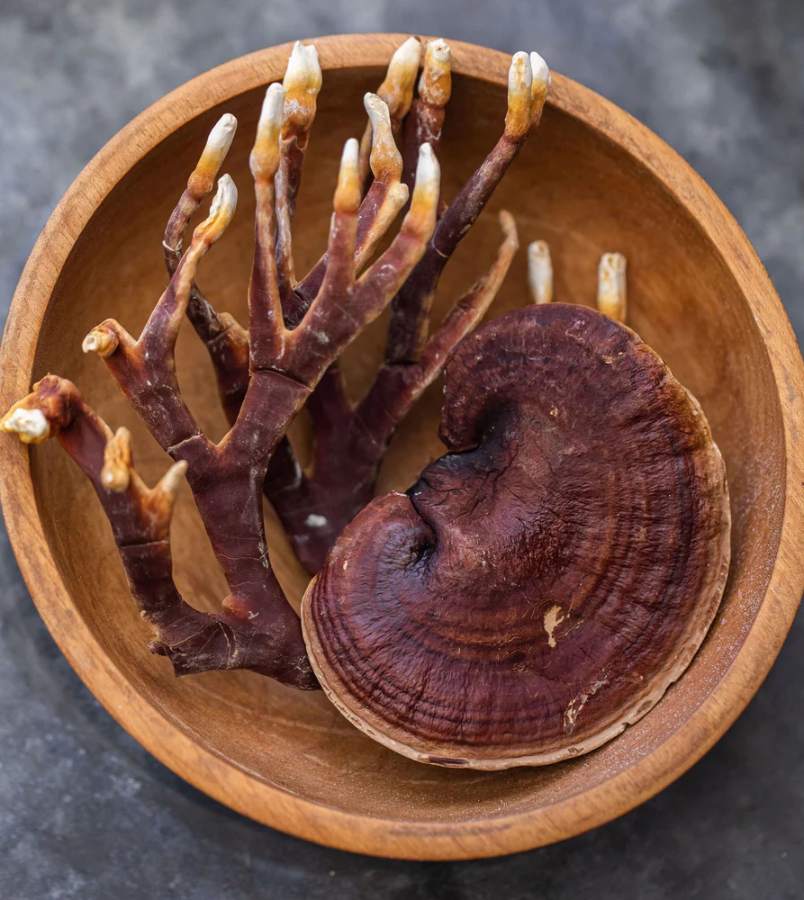
How to Take Lingzhi Mushroom
Reishi mushroom is one of the commonly used herbal medicines in the form of tea.
- Prepare 30-50 grams of finely chopped reishi mushroom.
- Boil 2 liters of water and add the chopped reishi mushroom.
Once the water starts boiling, reduce the heat and simmer until the water has reduced by 10-20%. You can adjust the amount of reishi and water according to your preference. The reishi mushroom tea can be served hot or chilled and stored in the refrigerator for later use.
Reishi Mushroom Tea Recipe
- Rinse the reishi mushroom with clean water and remove any moisture before finely chopping it.
- Rinse the jujubes thoroughly, remove the seeds, and finely chop them.
- In a pot or glass container, add 15g of reishi, 15g of jujubes (or licorice), and 1 liter of water and boil.
- Once the water starts boiling, reduce the heat and simmer for about an hour.
- Strain the tea and store it in the refrigerator. Drink it three times a day.
- The used reishi mushroom can be reused.
Reishi Mushroom Soju
- Ingredients: 250g of reishi mushrooms, 250g of dried jujube (or licorice), 1.8 liters of pure distilled soju
- Directions:
- Rinse the reishi mushrooms thoroughly with running water, remove any excess moisture, and chop them finely.
- Rinse the dried jujube (or licorice) thoroughly, removing any impurities from the wrinkles, remove the seeds, and chop them finely.
- Sterilize the container by boiling or washing it with soju, then let it dry.
- Add the reishi mushrooms, dried jujube (or licorice), and soju to the container, seal it tightly, and let it mature for over a year in a cool and dark place.
- Drink one cup in the morning and evening.
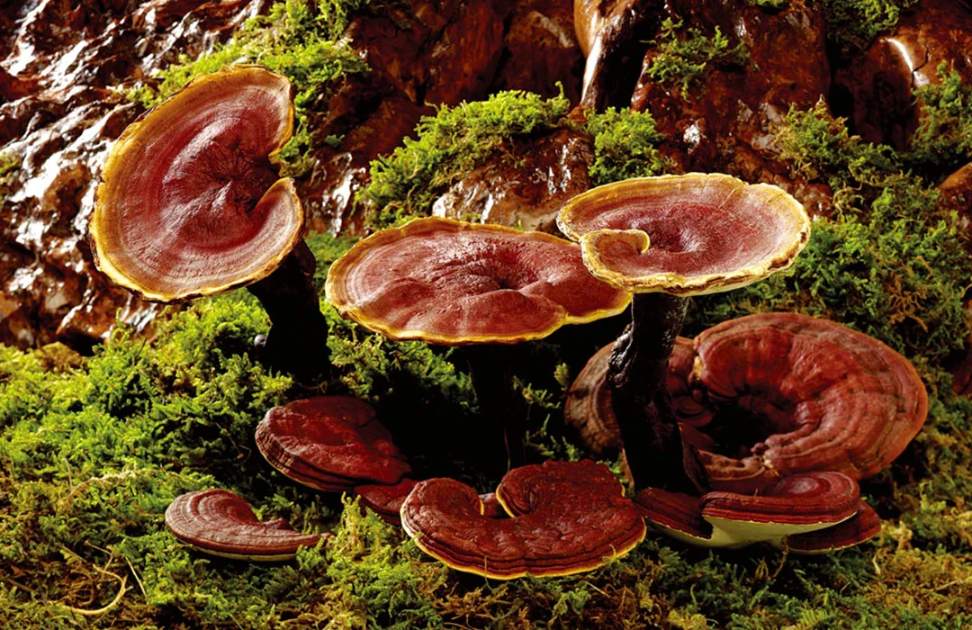
Side Effects
- Reishi mushrooms are generally considered safe. However, this can vary depending on your individual situation.
- If you have food allergies and are trying reishi mushrooms for the first time, you should be cautious.
- Depending on the situation, you may experience symptoms such as rash, dizziness, diarrhea, and headache. You should stop taking it and seek help from a medical professional.
- If you often have cold hands and feet and experience indigestion/diarrhea, it is recommended to take it with dates or licorice.
- Some people may experience abdominal pain, vomiting, diarrhea, hair loss, dizziness, skin rash, itching, mild body pain, etc. if taking it in large amounts. In such cases, stop taking it for 1-2 weeks, test for side effects, and then decide whether or not to take it again.
How to store
Many people ask how to store reishi mushrooms. For short-term storage, it is recommended to put them in a mesh bag that allows for ventilation and store them in a dry place. For long-term storage, it is best to store them in an airtight container in the refrigerator or freezer. Although reishi mushrooms are also grown and used in the West, they are used for completely different purposes and not for medicinal use like in the East. As mentioned above, due to their hard and dry texture, they are sometimes used as a source of firewood that burns well and lasts a long time.
